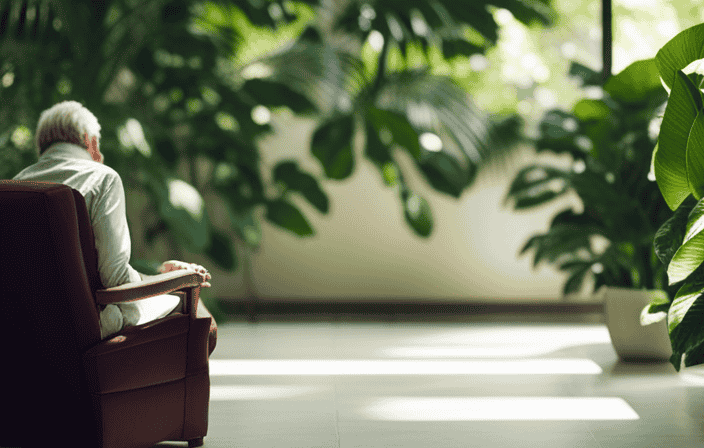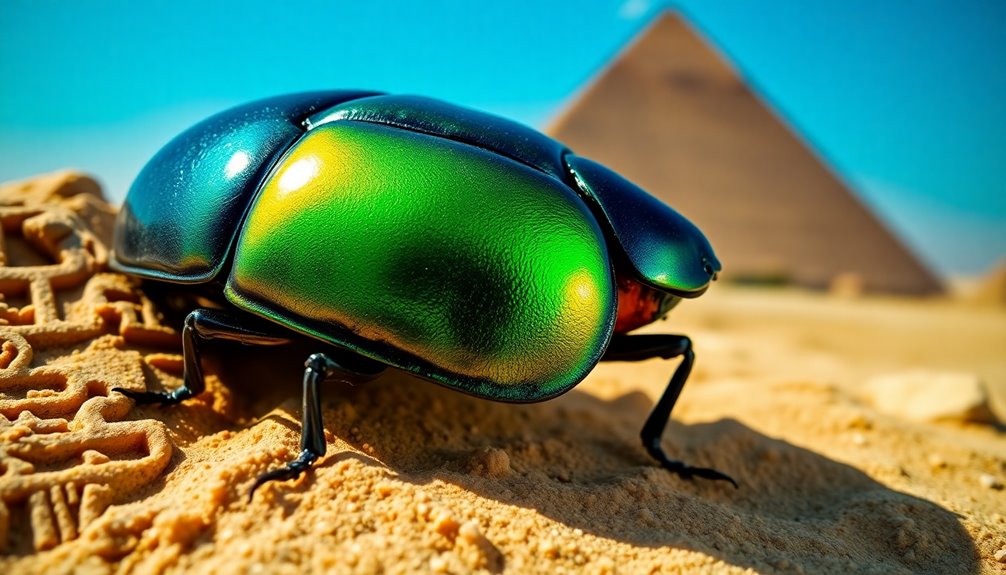Were you aware that around 40 million American adults are impacted by anxiety and depression? If you’re among those looking for a natural remedy, CBD could be a viable option.
CBD, or cannabidiol, has been gaining popularity for its potential in treating anxiety and depression. Research suggests that CBD can help reduce symptoms, promote relaxation, and improve sleep quality.
In this article, we will explore the benefits of CBD, how it works, and the latest research and studies supporting its use. We will also discuss important considerations, including dosage, safety, and legal status.
Join me as we discover the potential of CBD for anxiety and depression.
Key Takeaways
- CBD has been shown to reduce symptoms of anxiety and depression.
- CBD promotes relaxation, calmness, and a sense of well-being.
- CBD may improve sleep quality and regulate mood.
- CBD offers a potential alternative treatment option with fewer side effects compared to traditional medications.
Benefits of CBD
I’ve learned that CBD has numerous benefits for anxiety and depression. It has been found to possess anti-anxiety properties and may help reduce symptoms of depression.
One of the most significant advantages of CBD is its ability to promote a sense of well-being. Many individuals have reported feeling calmer and more relaxed after using CBD.
What’s more, CBD is non-addictive and generally well-tolerated, which is great news for those seeking natural alternatives. Compared to traditional medications, CBD may also have fewer side effects. This is especially important for individuals who have had negative experiences with conventional treatments in the past.
It’s important to note that CBD can be a valuable addition to a holistic approach to wellness, and finding the right dosage is crucial.
How CBD Works
CBD interacts with the endocannabinoid system, regulating mood, sleep, and stress response, while enhancing the production of serotonin and reducing the activity of the amygdala. This powerful interaction allows CBD to promote overall balance and homeostasis in our bodies.
When it comes to anxiety and depression, CBD has shown promising results in numerous studies.
Here are some key points to consider about how CBD works:
-
CBD enhances the production of serotonin, a neurotransmitter linked to happiness and well-being. This can help improve mood and reduce symptoms of depression.
-
CBD reduces the activity of the amygdala, the brain’s fear center. By doing so, it can help alleviate feelings of anxiety and promote a sense of calmness.
-
CBD interacts with the endocannabinoid system, which plays a crucial role in regulating various bodily functions, including mood, sleep, and stress response.
By understanding how CBD works in our bodies, we can better appreciate its potential as a natural alternative for managing anxiety and depression.
Research and Studies
Research and studies have consistently shown the effectiveness of CBD in reducing symptoms of anxiety and depression. Numerous studies have indicated that CBD possesses anxiolytic and antidepressant properties, making it a potential alternative treatment option for those struggling with these common mental health conditions.
In particular, CBD has shown promise in reducing symptoms of social anxiety disorder and post-traumatic stress disorder (PTSD). This natural compound interacts with the endocannabinoid system, regulating mood, sleep, and stress response. CBD enhances the production of serotonin, a neurotransmitter linked to happiness, while reducing the activity of the amygdala, the brain’s fear center. It promotes overall balance and homeostasis in the body.
CBD offers a more natural approach to wellness and may be suitable for individuals who do not respond well to conventional treatments. However, it is important to find the right dosage and be aware of potential side effects. Additionally, the legality of CBD varies by country and state.
Considerations and Safety
Considering the safety of using CBD as a treatment option, it is essential to find the right dosage and be aware of potential side effects. CBD is generally well-tolerated, but it’s important to note that some individuals may experience side effects such as dry mouth, drowsiness, and changes in appetite.
It is crucial to start with a low dosage and gradually increase it if needed, under the guidance of a healthcare professional. Additionally, CBD legality varies by country and state, so it’s important to research and understand the legal status before using it.
When using CBD for anxiety and depression, it can be beneficial to incorporate it as part of a holistic approach to wellness, including therapy, healthy lifestyle choices, and self-care practices. It’s important to remember that CBD is not a cure-all, and professional treatment should always be sought for serious mental health conditions.
CBD Dosage
To determine the appropriate dosage of CBD for anxiety and depression, I consulted with a healthcare professional.
It is important to note that there is no one-size-fits-all dosage for CBD, as it can vary depending on factors such as body weight, individual tolerance, and the severity of symptoms.
The healthcare professional took into consideration my specific needs and recommended starting with a low dosage and gradually increasing it if necessary. They emphasized the importance of monitoring how my body responds to the CBD and adjusting the dosage accordingly.
It is also essential to choose a reputable CBD product from a trusted source to ensure its quality and safety.
Overall, finding the right CBD dosage requires personalized guidance and careful observation of its effects on my anxiety and depression symptoms.
Legal Status
Now that we have discussed the importance of finding the right CBD dosage, let’s turn our attention to the legal status of CBD. It is crucial to be aware of the legalities surrounding CBD before incorporating it into your anxiety and depression treatment plan.
The legal status of CBD varies from country to country and even within different states. In some places, CBD is fully legal and easily accessible, while in others, it may be heavily regulated or even illegal.
To help you navigate this topic, I have created a table outlining the legal status of CBD in different regions. This will provide you with a better understanding of where CBD stands in your specific location and what restrictions or regulations may apply.
| Region | Legal Status of CBD |
|---|---|
| USA | Varies by state |
| Canada | Legal |
| UK | Legal |
| Australia | Legal for medical use |
Remember, it is crucial to stay informed and comply with the laws regarding CBD in your area. This will ensure that you can safely and legally access the potential benefits of CBD for anxiety and depression.
Holistic Approach
Taking a holistic approach to managing my mental health is essential. When it comes to anxiety and depression, I’ve learned that it’s important to address not just the symptoms, but also the underlying factors that contribute to these conditions.
CBD has been a game-changer for me in this regard. Not only does CBD help reduce my anxiety and depression symptoms, but it also promotes an overall sense of well-being. CBD’s interaction with the endocannabinoid system regulates my mood, sleep, and stress response, creating a sense of balance and homeostasis.
Additionally, CBD enhances the production of serotonin, the neurotransmitter linked to happiness, while reducing the activity of the brain’s fear center. Incorporating CBD into my holistic approach to wellness has truly made a difference in my mental health journey.
Incorporating CBD into my holistic approach to managing anxiety and depression has been a game-changer for me. Not only does it provide natural relief, but it also complements the other strategies I use to support my mental health.
Here are four ways CBD has enhanced my holistic approach:
-
Increased relaxation: CBD promotes a sense of calmness and relaxation, helping me to unwind and reduce stress levels.
-
Improved sleep quality: CBD has been shown to improve sleep, which is crucial for managing anxiety and depression. Getting enough restorative sleep helps me feel more balanced and energized.
-
Enhanced mood regulation: CBD supports the regulation of mood by interacting with the endocannabinoid system and enhancing the production of serotonin, a neurotransmitter linked to happiness.
-
Alternative treatment option: CBD offers a natural alternative to traditional medications, with potentially fewer side effects. It has given me a sense of control over my mental health journey and the ability to explore different options.
Incorporating CBD into my holistic approach has truly been a transformative experience, and I encourage others to explore its potential benefits for themselves.
Frequently Asked Questions
Are there any potential side effects of using CBD for anxiety and depression?
There are potential side effects of using CBD for anxiety and depression. While CBD is generally well-tolerated, some individuals may experience side effects such as dry mouth, drowsiness, and changes in appetite or weight. It’s important to consult with a healthcare professional before starting CBD treatment.
How long does it take for CBD to start showing its effects on anxiety and depression symptoms?
It varies from person to person, but some individuals may start experiencing the effects of CBD on anxiety and depression symptoms within a few days to a few weeks of consistent use.
Can CBD be used as a standalone treatment for anxiety and depression, or should it be used in conjunction with other therapies?
CBD can be used as a standalone treatment for anxiety and depression, but it is often more effective when used in conjunction with other therapies. Combining CBD with professional treatment and holistic approaches can provide comprehensive support for mental health.
Is CBD legal in all countries, or are there restrictions on its use for anxiety and depression?
CBD legality varies by country and state. While many places have legalized CBD for medical use, some restrictions may apply. It’s important to understand the laws and regulations in your specific location before using CBD for anxiety and depression.
Can CBD interact with other medications commonly used for treating anxiety and depression?
Yes, CBD can interact with other medications commonly used for treating anxiety and depression. It’s important to consult with a healthcare professional before combining CBD with any medications to ensure safety and effectiveness.










